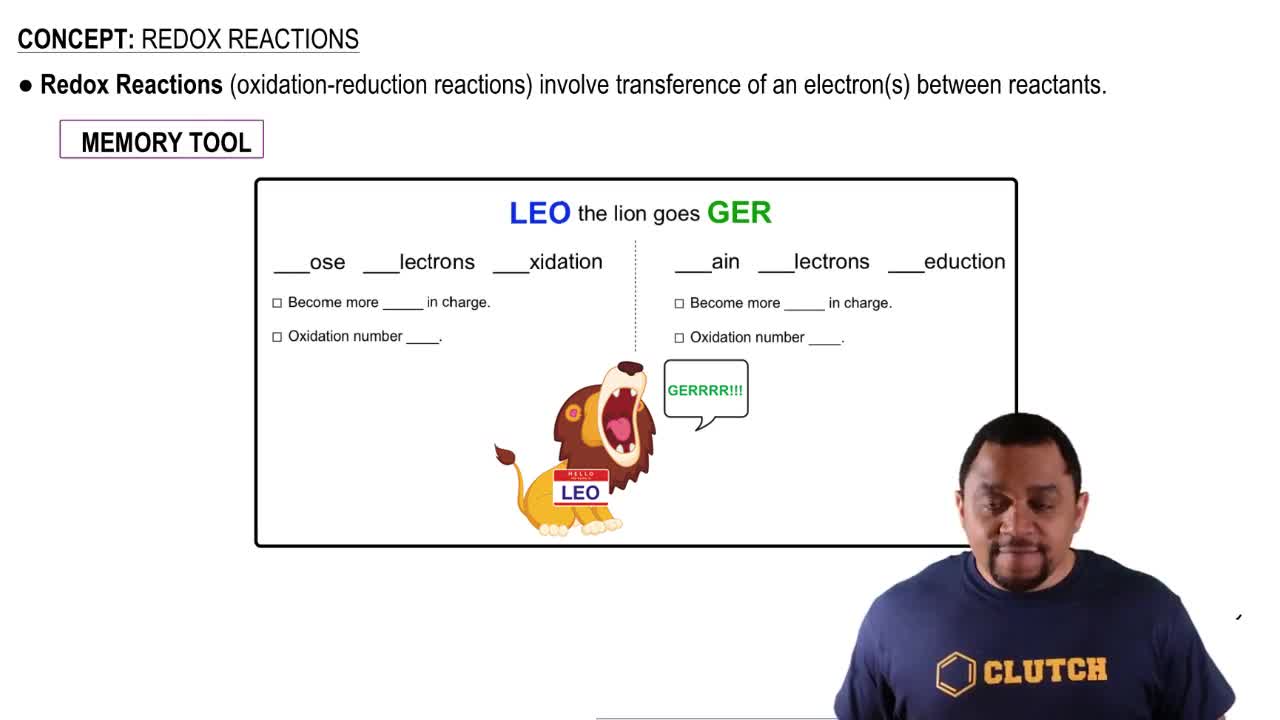Textbook Question
Fill in the missing organic product or reactant for the following hydration reactions:
(b) <IMAGE>
20
views
 Verified step by step guidance
Verified step by step guidance



Fill in the missing organic product or reactant for the following hydration reactions:
(b) <IMAGE>
Are the substances shown in italics undergoing oxidation or reduction?
(c) Wine (containing ethanol, CH₃CH₂OH) sours to vinegar (CH₃COOH).
Are the substances shown in italics undergoing oxidation or reduction?
(c) The biomolecule FADH₂ loses hydrogen, becoming FAD.
Determine whether each of the following organic reactions is an oxidation or a reduction reaction. (Only the organic compounds are shown.)
(b) <IMAGE>
Write the products of the following reactions:
(b) <IMAGE>
Write the products of the following reactions:
(a) <IMAGE>